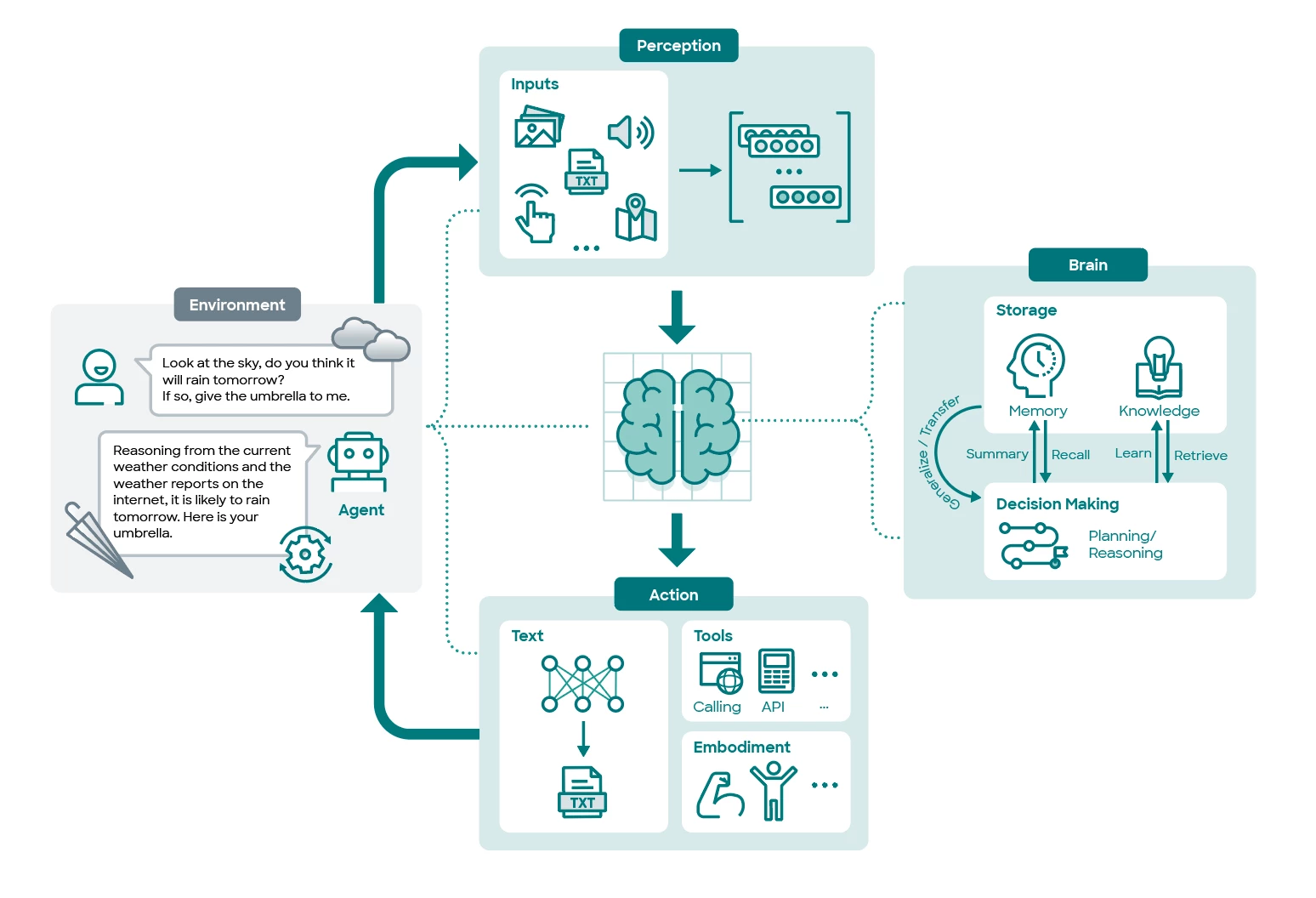AI agent systems are changing how businesses use automation and make decisions. They provide new methods to improve operations and boost efficiency. These systems can handle complex tasks, collaborate with other agents, and interact with human operators to deliver real results.
To fully use their potential, it's important to know what they are capable of. You should also understand where the technology is going and how it can help your business.
In this article, we will look at the main functions of AI agents. We will discuss how they operate in multi-agent environments. Additionally, we will explore possible use cases in different industries.
We will also explore how these systems are used in software development. Then we will outline steps businesses can take to use these systems for long-term success.
What are AI Agents?
AI agents are autonomous systems. Their purpose is to independently execute complex tasks and workflows. For example, sensing and adapting to changing environments, reasoning, planning, making decisions, and acting with minimal human input. Businesses increasingly integrate them into their processes, automating repetitive tasks and solving more complex problems that require decision-making and collaboration.

Clear functions that drive results
The power of AI agents comes from three main functions: thought, perception, and action. These are the building blocks that allow agents to operate independently while delivering meaningful outcomes for businesses.
- Thought: AI agents use data to analyze situations, make decisions, and plan. Whether they are improving a supply chain or handling customer questions, they can learn from data. This helps them get better over time and become more effective.
- Perception: AI agents are able to handle inputs from different sources, such as images, text, or sound. This means they can understand complex data sets. This includes visual data from sensors in a factory and feedback from customer interactions in real time.
- Action: Perhaps most importantly, AI agents can act autonomously. They perform tasks, make adjustments, and interact with systems to achieve specific goals. Their ability to work without constant supervision makes them stand out. This quality makes them a valuable addition to businesses that want to automate operations and improve efficiency.
Multi-Agent Systems: Driving collaboration and efficiency
One of the most exciting developments in AI are multi-agent systems. In these systems, several AI agents work together to reach a common goal. These systems can coordinate complex workflows, distribute tasks among agents, and ensure seamless communication to achieve better outcomes faster.
Smart collaboration at scale
In multi-agent systems, different agents are assigned specific tasks. In a customer service setting, one agent may answer questions. Another agent might manage customer data and a third agent could give recommendations. When these agents collaborate, they can deliver a seamless, efficient experience without the need for manual intervention.
To ensure effective collaboration, businesses are increasingly using a master orchestrator agent. This orchestrator controls the actions of other agents and ensures that tasks are completed in the right order and on time. This practical approach reduces errors and maximizes the value that AI agents can deliver.
AI Agents and automation: Enhancing existing processes
Integrating AI agents into Robotic Process Automation (RPA) workflows is another way businesses can achieve faster, more reliable results. RPA is already widely used to automate repetitive tasks. But adding AI agents into the mix takes the technology to the next level. They bring decision-making capabilities to automated processes, allowing businesses to tackle more complex tasks with greater accuracy and adaptability.
Scalable solutions with efficiency in mind
Businesses are also looking for cost-effective ways to deploy AI agents. Using Small Language Models (SLMs) instead of Large Language Models (LLMs) can help businesses save money. At the same time, they can enjoy the benefits of AI-driven automation.
This scalability allows agents to fit into current systems without needing costly hardware. This makes them available to businesses of all sizes.
Industry Applications: Where AI Agents are making an impact
AI agents are proving valuable across a variety of industries. These agents are improving results in retail, manufacturing, healthcare, finance, and telecommunications. They do this by automating tasks, optimizing workflows, and enhancing decision-making processes.
Retail and E-Commerce
AI agents are helping retailers provide personalized customer experiences by analyzing shopping behavior and offering tailored recommendations. They can also manage inventory and predict demand. This helps streamline supply chain operations and ensures that products are available when and where they are needed.
Manufacturing
In manufacturing, AI agents monitor equipment, detect potential issues before they arise, and optimize production schedules. By analyzing data in real-time, these agents can prevent costly downtime and ensure operations run smoothly.
Healthcare
AI agents are improving patient care by monitoring vital signs, analyzing medical data, and providing personalized treatment recommendations. They can also automate administrative tasks, such as scheduling appointments and managing patient records. This saves time for the healthcare professionals who can then focus on patient care.
Finance
AI agents are revolutionizing finance by automating trading, managing portfolios, and detecting fraud. They can analyze market conditions in real-time and make decisions based on data. This helps financial institutions manage risks and maximize returns.
Telecommunications
In telecommunications, AI agents optimize network performance, predict outages, and manage customer support. By automating these processes, telecom companies can provide better service to their customers while reducing operational costs.
AI Agents in software development
AI agents are making a significant impact in software development. They automate key tasks, reduce development time, and improve code quality. AI agents are not only able to complete code, generate unit tests but they can also do full-scale software reviews. With these capabilities, AI agents transform the way developers create and maintain software.
Streamlining development processes
AI agents can assist developers by suggesting code improvements, generating unit tests, and even automating code reviews. This not only speeds up development but also ensures higher-quality code. In more advanced situations, AI agents can handle the whole software development process. This includes planning, development, testing, and deployment.
AI agents are great at helping with tasks like documentation and code generation. However, people are still cautious about using them for important infrastructure deployment tasks. However, as these systems continue to improve, the role of AI agents in software development is expected to grow.
Preparing for the future of AI Agents
The future of AI agent systems is full of potential. However, businesses need to take a strategic approach to ensure they’re ready to harness this technology.
Organizations can help their teams work with AI agents by using clear examples. They should also build reliable systems and ensure proper oversight. Then AI agents can contribute to driving innovation and efficiency.
